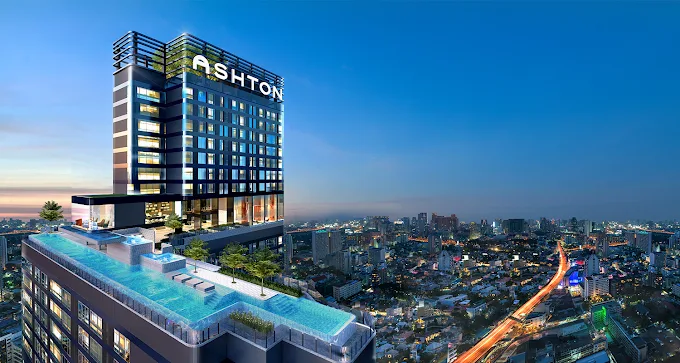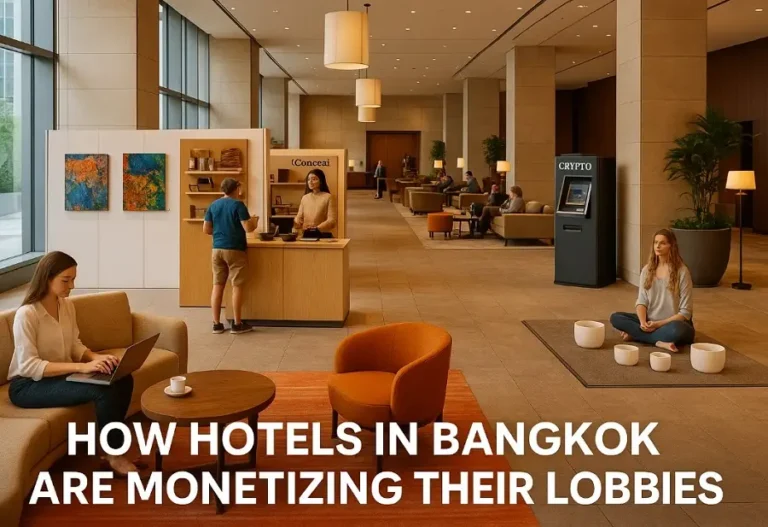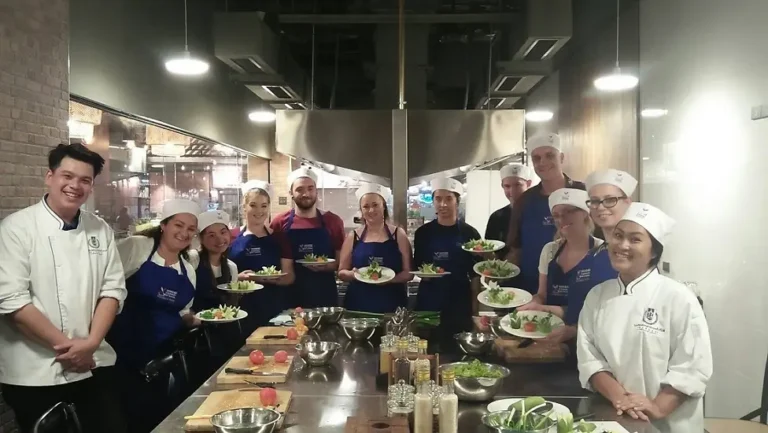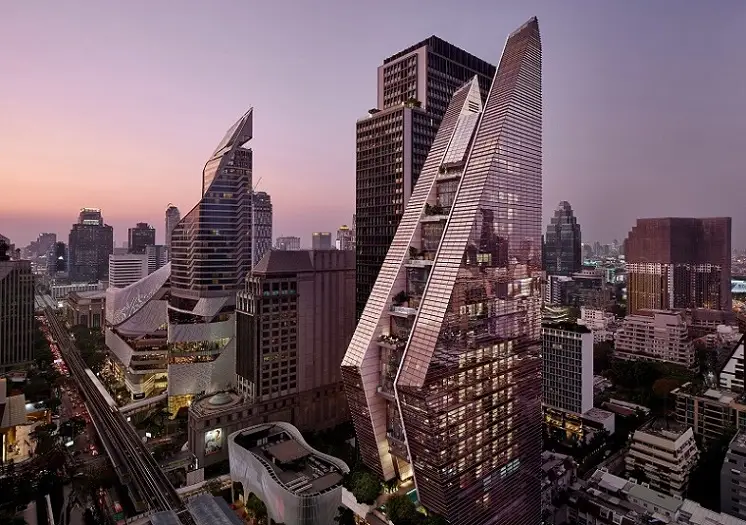
Bangkok Hotel News: Outrage Builds Over People’s Party MP’s Proposed Hotel Law
A highly controversial draft bill pushed by People’s Party MP Nataphol Tovichakchaikul is drawing fierce opposition from Thailand’s hotel sector, real estate developers, and community leaders. Critics warn the proposed legislation could upend the country’s regulated hotel system, force thousands of legitimate hotels out of business, and open the floodgates for chaos and safety risks in residential neighborhoods across the country.

Image Credit: StockShots
The draft bill, called the Hotel and Overnight Accommodation Act, is set to replace the longstanding Hotel Act of 2004. But instead of raising standards or improving clarity, the legislation proposes to broaden the legal scope of what qualifies as “overnight accommodation,” allowing properties with as many as 29 rooms and up to 58 guests to operate without being classified as hotels.
This Bangkok Hotel News report reveals growing alarm across the tourism and property sectors over the bill’s potentially devastating consequences. Under the proposed changes, condominium units and houses could be converted into short-term accommodations almost overnight, bypassing many current regulatory safeguards.
A Gift to Investors, a Nightmare for Residents
One of the fiercest critics of the proposed bill is Surapong Techaruvichit, former president of the Thai Hotels Association (THA) and managing director of Asia Hotel Plc. Surapong warned that the new legislation would enable real estate investors to convert residential units into pseudo-hotel rooms with minimal resistance.
“Most condo residents don’t attend their annual general meetings, which makes it easy for investors to manipulate voting outcomes,” Surapong explained. “A small group could obtain approval from a building’s juristic body and effectively turn a quiet residential tower into a revolving-door accommodation facility—without informing existing residents.”
Surapong stressed that such conversions could happen without the knowledge of people who purchased homes to live in, exposing families to unwanted disturbances and serious safety risks. He pointed to Bangkok and Phuket, where illegal short-term rentals have already triggered complaints about loud parties, drunken guests, and strangers roaming shared corridors at all hours.
Erosion of Safety and Community Standards
Critics argue that legitimizing such practices will not only damage the integrity of communities but also compromise tourist safety—a long-standing weak point for Thailand’s global tourism image. The THA, now led by President Thienprasit Chaiyapatranun, says it has submitted strong objections to the Ministry of Interior regarding the bill’s definitions and scope.
“The way the draft law defines a ‘room’ and permits operations based on unit counts instead of entire buildings is extremely problematic,” Thienprasit said. “Without oversight over entire buildings, guest safety, fire standards, and emergency response become impossible to regulate.”
Currently, only buildings with eight or fewer rooms and up to 30 guests are exempt from being licensed as hotels. Expanding that cap to 29 rooms would provide a loophole large enough to run mini-hotels inside condos—many of which lack basic safety features such as fire escapes, 24-hour staff, or proper emergency lighting.
A Developer’s Dilemma
Adding to the growing dissent are members of the Thai Real Estate Association, who believes the bill is dangerously vague and opens legal gray zones that developers could exploit—or be victimized by. “No responsible developer is going to market a condo project as a hotel from the beginning,” they said. “It would destroy buyer confidence. So what happens is they keep those intentions hidden until after sales are complete.”
They noted that Thai developers often aim for genuine homebuyers, not speculative investors. “People who buy condos to live in them expect privacy, peace, and community standards. That’s completely lost if the unit next door becomes a hotel room rented out to drunken tourists every night,” he added.
He also raised concerns about the practice of using booking platforms—many based overseas—that facilitate short-term rentals without contributing to local taxes. “Thailand gains very little from these arrangements, while local communities are left dealing with the noise, trash, and property damage,” They said.
Backdoor Expansion Without Environmental Review
Another major flaw in the proposed law lies in its potential to undermine environmental regulations. Projects with more than 79 rooms are currently required to undergo environmental impact assessments (EIAs). However, under the new draft, operators could split properties into blocks of 29 rooms and use different legal entities to avoid EIA thresholds altogether.
“It’s a dangerous precedent,” said Thienprasit. “We’ve seen this before—developers using different nominees to secure separate licenses. If this law passes, the problem will worsen.”
This strategy would allow commercial-scale hotel operations to emerge in areas never zoned or designed for tourism, sidestepping essential community planning and environmental protections.
It is interesting to note that one of the earlier founders of the original incarnation of the People’s Party along with some of his relations and also certain other members of the party are involved in real estate developments and also build numerous condo and housing projects!
It will also be interesting to see the feedback from Dusit Hotels on this new hotel law proposal as Dusit ardently support a certain a social enterprise platform and its founders who are linked to that ex-politician.
Unfair Competition and Erosion of Hospitality Jobs
Legitimate hotel operators—who follow strict licensing, safety, and staffing regulations—say they will be unable to compete with low-cost, under-regulated operations springing up inside residential buildings. With fewer operational costs and virtually no regulatory burdens, informal accommodations could attract budget travelers en masse, decimating formal hotels already struggling to recover post-COVID.
“There’s no way a licensed hotel, which has to maintain fire safety systems, employ trained staff, and pay corporate taxes, can compete against someone turning a few condo units into nightly rentals,” Surapong said.
Thailand’s formal hotel sector employs hundreds of thousands of workers across the country. Housekeepers, bellhops, chefs, receptionists, and maintenance crews all rely on regulated hotel businesses for their livelihoods. If the new law passes, industry insiders fear the market will tilt heavily toward unlicensed or semi-legal operators, leading to a massive loss of jobs.
Unregulated Rentals Could Fuel Crime and Exploitation
Beyond job losses, there are serious concerns about criminal activity. Short-term rental units are rarely staffed or monitored, making them ideal for illicit activities—from drug use to human trafficking. In extreme cases, female residents of condos have reported being followed to their rooms by strangers, or confronted by intoxicated guests loitering in hallways and pool areas.
Pornnarit referenced several documented complaints from high-end residential communities in Bangkok, where children were exposed to unruly tourists engaging in lewd behavior or blasting music late into the night.
“This is more than a nuisance,” he said. “It’s a real threat to community safety and dignity.”
Call For Investigation into Opposition.
Many are now calling for an investigation into which groups the opposition party are actually lobbying for. In Thailand, it has been found that many Chinese followed by British and Singaporean investors were behind buying condos or even townhomes and renting them out for daily rent to tourists while causing problems for Thai residents.
Thailand’s Global Image Hangs in the Balance
For a country that depends so heavily on tourism, allowing such a dramatic dilution of standards could prove disastrous in the long term. The Thai Chamber of Commerce’s high-quality tourism committee, warned that if Thailand gains a reputation as an unsafe or chaotic destination, it will be difficult to recover.
“We have seen time and again that safety incidents have long-lasting consequences,” they said. “If we allow informal, unregulated accommodation to flourish, we are handing our future to chance—and risking irreparable harm.”
While the proposed bill is still under discussion, the sheer scale of concern from nearly every segment of the tourism and real estate industries makes one thing clear: this legislation, if passed in its current form, could spark a regulatory and social crisis.
Legitimate hoteliers, residents, workers, and developers all stand to lose if residential buildings are turned into de facto hotels without proper zoning, safety protocols, and community approval. The draft law would also erode fair competition, reduce tax contributions, and create a two-tier hospitality system: one that follows the law and another that evades it.
In short, the bill would allow investors to profit at the expense of public safety, employment, and community cohesion—while placing yet another dent in Thailand’s already fragile reputation for tourism safety.
For the latest on the Thai Hotel Industry, keep on logging to Bangkok Hotel News.







